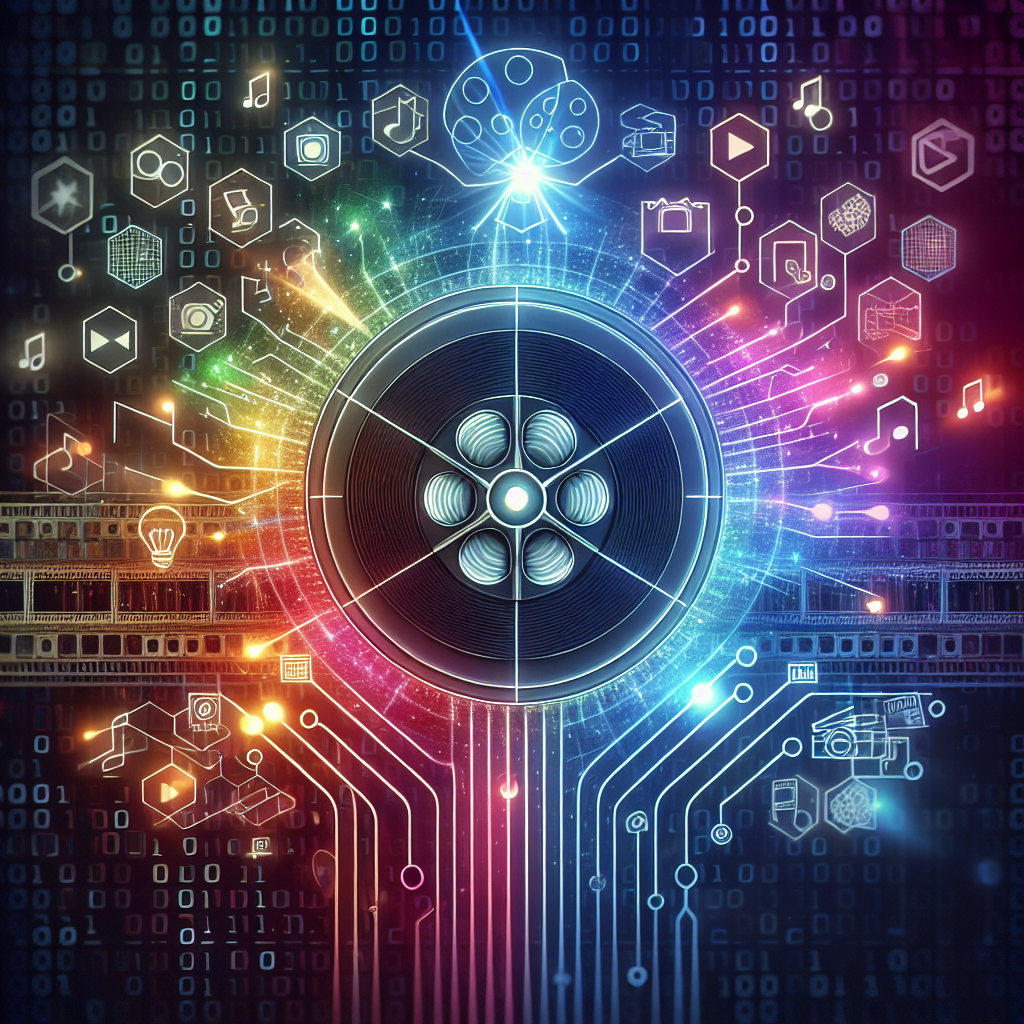The Future of AI in Entertainment: Revolutionizing the Media Industry
Artificial Intelligence (AI) has been making waves in various industries, from healthcare to finance, and now it is set to revolutionize the entertainment industry as well. AI technologies have the potential to transform the way we create, consume, and interact with media, offering new possibilities for content creation, distribution, and personalization. In this article, we will explore the impact of AI on the media industry and discuss how it is shaping the future of entertainment.
AI in Content Creation
One of the most significant ways AI is revolutionizing the entertainment industry is through content creation. AI algorithms can analyze vast amounts of data to identify trends, patterns, and preferences, helping creators develop content that resonates with audiences. For example, Netflix uses AI to analyze viewer data and create personalized recommendations for its users. AI can also be used to generate content, such as writing articles, composing music, or even creating artwork. This has the potential to streamline the creative process, reduce costs, and increase efficiency.
AI in Distribution and Consumption
AI is also transforming the way media is distributed and consumed. Streaming services like Netflix and Spotify use AI algorithms to recommend content based on user preferences, viewing habits, and social interactions. This personalized approach to content delivery enhances the user experience and increases engagement. AI can also be used to optimize distribution strategies, such as determining the best time to release a movie or TV show based on audience behavior and preferences.
AI in Personalization and Interactivity
AI technologies are enabling new forms of personalization and interactivity in entertainment. For example, AI-powered chatbots can engage with users in real-time, providing personalized recommendations, answering questions, and even creating interactive narratives. Virtual reality (VR) and augmented reality (AR) experiences are also leveraging AI to create immersive and interactive content that adapts to user input and behavior. These technologies are blurring the lines between traditional media formats and interactive experiences, offering new possibilities for storytelling and engagement.
Challenges and Opportunities
While AI offers a wide range of opportunities for the entertainment industry, it also presents challenges. One of the main concerns is the potential for AI to replace human creativity and innovation. As AI algorithms become more sophisticated, there is a risk that they could automate tasks traditionally performed by humans, such as writing scripts, composing music, or editing videos. This could lead to a homogenization of content and a reduction in diversity and originality.
Another challenge is the ethical implications of AI in entertainment. For example, AI algorithms may inadvertently perpetuate biases or stereotypes in content creation and distribution. There are also concerns about data privacy and security, as AI systems rely on vast amounts of user data to personalize content and recommendations. It is essential for companies to establish clear guidelines and policies to ensure that AI is used responsibly and ethically in the entertainment industry.
Despite these challenges, AI also offers significant opportunities for the entertainment industry. By leveraging AI technologies, companies can enhance the user experience, increase engagement, and unlock new revenue streams. AI-powered tools can help creators explore new creative possibilities, optimize production workflows, and reach a global audience. As AI continues to evolve and mature, it will play an increasingly central role in shaping the future of entertainment.
FAQs
Q: How is AI being used in content creation in the entertainment industry?
A: AI is being used in content creation to analyze data, identify trends, and personalize content for audiences. It can also generate content, such as writing articles, composing music, or creating artwork.
Q: How is AI transforming the distribution and consumption of media?
A: AI is transforming the distribution and consumption of media by enabling personalized recommendations, optimizing distribution strategies, and enhancing user engagement. Streaming services like Netflix and Spotify use AI algorithms to recommend content based on user preferences and behavior.
Q: What are the challenges of using AI in entertainment?
A: Some of the challenges of using AI in entertainment include the potential for AI to replace human creativity, ethical concerns about bias and data privacy, and the need for clear guidelines and policies to ensure responsible use of AI technologies.
Q: What opportunities does AI offer for the entertainment industry?
A: AI offers opportunities for the entertainment industry to enhance the user experience, increase engagement, and unlock new revenue streams. AI-powered tools can help creators explore new creative possibilities, optimize production workflows, and reach a global audience.

